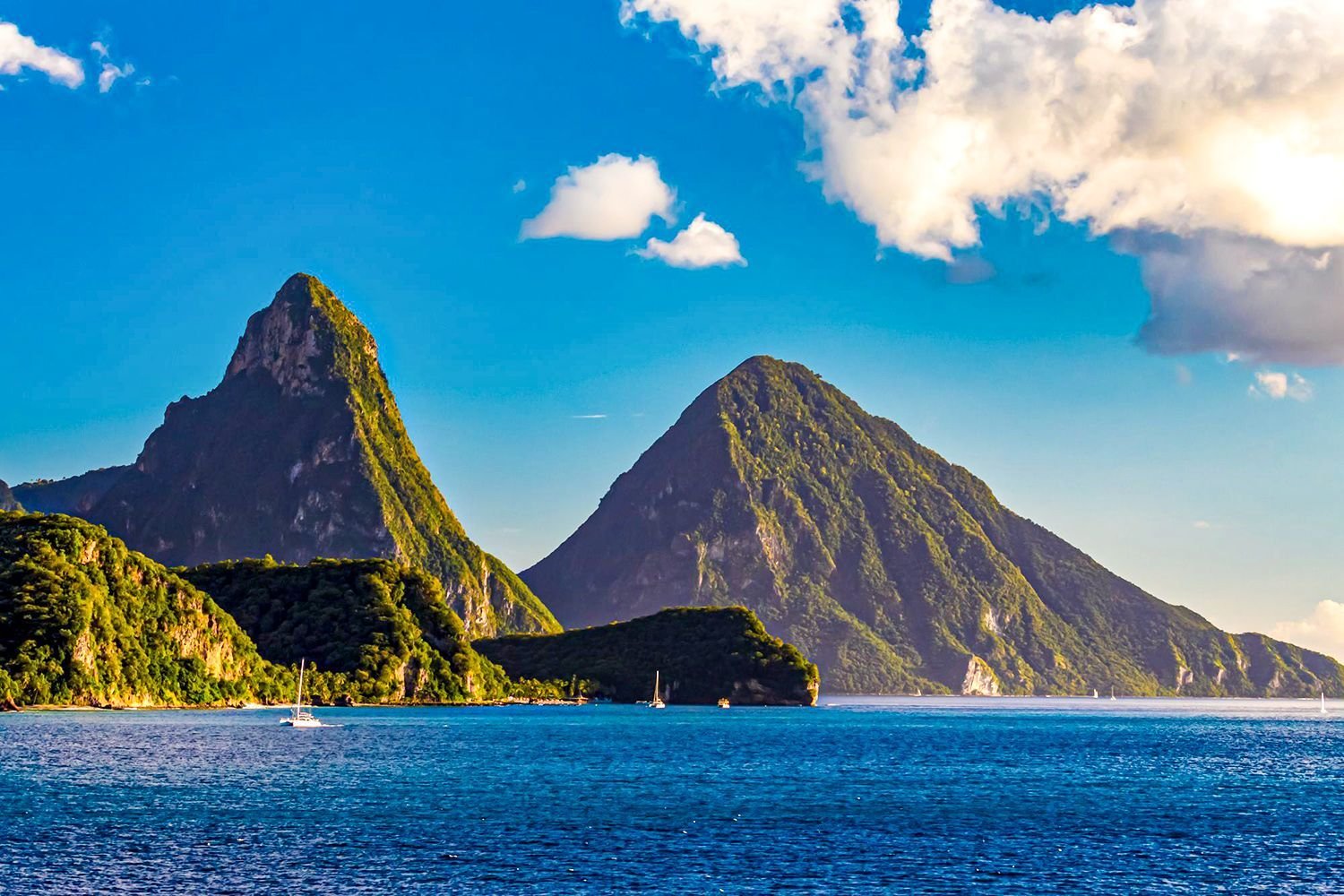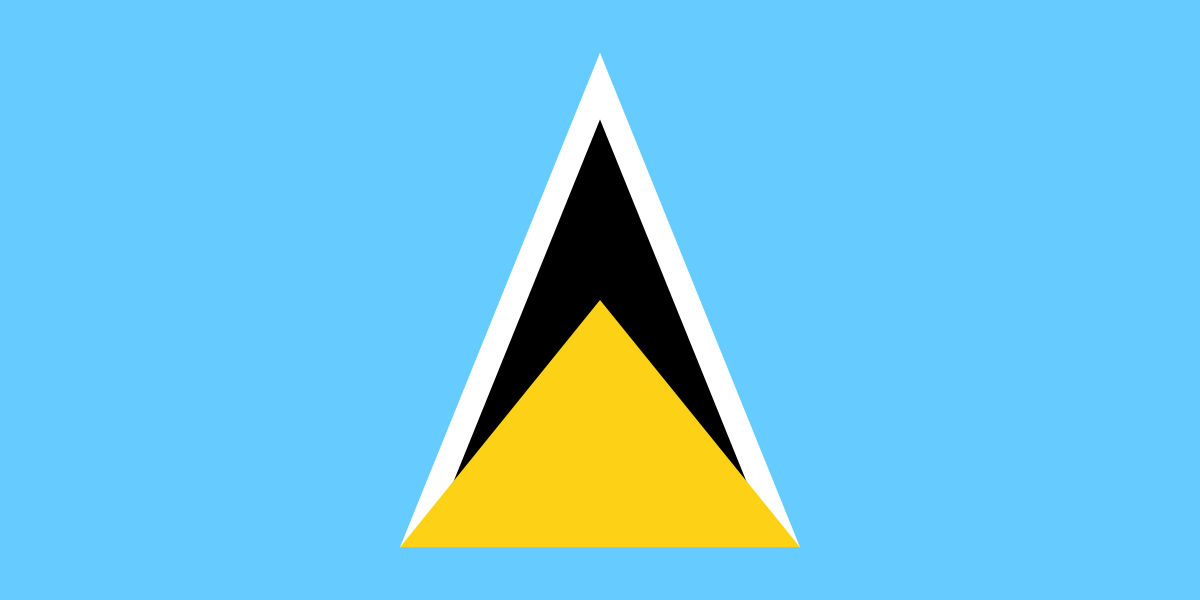
Saint Lucia - 70.59
50
A honeymoon-based economy
Saint Lucia sees some of the highest economic disparity in the Caribbean. The country’s economic development overly focused on the tourism industry, combined with a wealthy upper class of expats have left average Saint Lucians much poorer than wealthy foreigners and tourism industry elites. Despite this, the country maintains a relatively strong economy and has kept poverty at a level that is relatively manageable. Saint Lucia’s democracy is one of the strongest in the Caribbean and the country’s healthcare system is one of the strongest. Saint Lucia, does, however, face significant problems with human rights, as unenforced statutes banning homosexuality for men remain in place. Saint Lucia’s citizenship-by-investment program is also rife with abuse and has drawn significant ire.
Human Rights - 69
Saint Lucia has fully abolished the death penalty. The government has failed to investigate several reported instances of torture. Saint Lucian prisons were mildly overcrowded, with the prison system holding 549 inmates with a capacity of 500. Detainees often spent months or years in pretrial detention and were often held together with convicts. Homosexuality is illegal for men and legal for women, although this statute goes unenforced. Abortion is legal to preserve the physical and mental health of the woman, as well as in cases of rape and incest.
Democracy - 91
Saint Lucia is a commonwealth democracy, limiting their score to 95. The governor-general is appointed by the queen and the prime minister is appointed by the governor-general but is usually the leader of the majority coalition. The House of Assembly is directly elected, while the Senate is appointed by the House of Assembly. 6/11 Senate seats are chosen by the prime minister, three are chosen by the opposition leader, and two are chosen by consulting civic and religious groups. Elections are generally free and fair. Saint Lucia is under a two-party system. The United Worker’s Party (ULP) and Saint Lucia Labour Party (SLP) have dominated politics since the 1960s but party formation and participation is not restricted.
Freedom - 82
Libel is a criminal offense, though this statute goes unenforced. Libel is punishable by hefty fines and up to five years of prison time. Despite a lack of enforcement, some journalists still self-censor. The government is known to send out hollow cease-and-desist letters to critics. Catholic organizations receive some preferential treatment and Rastafarians and Muslims report some light discrimination and harassment. All drugs are illegal in Saint Lucia and Rastafarians do not have a religious exemption from marijuana laws. Saint Lucia may issue gun ownership licenses for semi-automatic rifles and handguns, but a justification or membership in a rifle organization is required. There are few guns in Saint Lucia as a result.
Economy - 55
Health - 80
Saint Lucia has a life expectancy of 76 years and an infant mortality rate of 1.6%. 19.7% of Saint Lucians are obese and 6.3% are malnourished. Saint Lucia’s strong semi-universal healthcare system offers heavily subsidized, high-quality care to all Saint Lucian citizens. 97% of Saint Lucians have access to clean, running water. Saint Lucia has minor problems with mosquito-borne tropical diseases, namely zika.
Corruption - 64
Saint Lucia’s citizenship-by-investment program is generally regarded as more stringent than others but is nonetheless rife with abuse. Prime Minister Chastanet and Development Minister Joseph were indicted in a corruption scandal during an airport renovation. Public services in Saint Lucia often must be bribed into action.
Competency - 65
The government is failing to provide for the people, as the Saint Lucian healthcare system has existed in a semi-universal state for several years. Saint Lucians also get prioritized below wealthy expats. The government is also failing to repeal or use unenforced laws.
Future - 40
Saint Lucia’s economy took a significant hit in 2020 and will likely take several years to recover.
Actions Abroad - 44
Saint Lucia is a tax haven. Saint Lucia offers a citizenship-by-investment process that, while not as egregious as other countries, is still rife with abuse. Saint Lucia recognizes the independence of Taiwan, but its relationship with the Republic of China is based largely on foreign investment and trade. Saint Lucia received a ten point penalty for its tax haven status.
4.7% of Saint Lucians live below the international poverty line and 25% live under the national poverty line. 17.13% of Saint Lucians are unemployed. Saint Lucia has some of the highest economic disparity in the Caribbean, driven by the country’s reliance on the tourism industry and reliance on wealthy expats. Saint Lucia has no minimum wage. Saint Lucia boasts a strong semi-universal healthcare system. Healthcare in Saint Lucia is heavily subsidized for all citizens and is of consistently high quality throughout the country. Care in Castries and Vieux Fort is comparable to care in Europe. The Saint Lucian economy shrunk 20.2% in 2020 and grew 1.7% in 2019.
